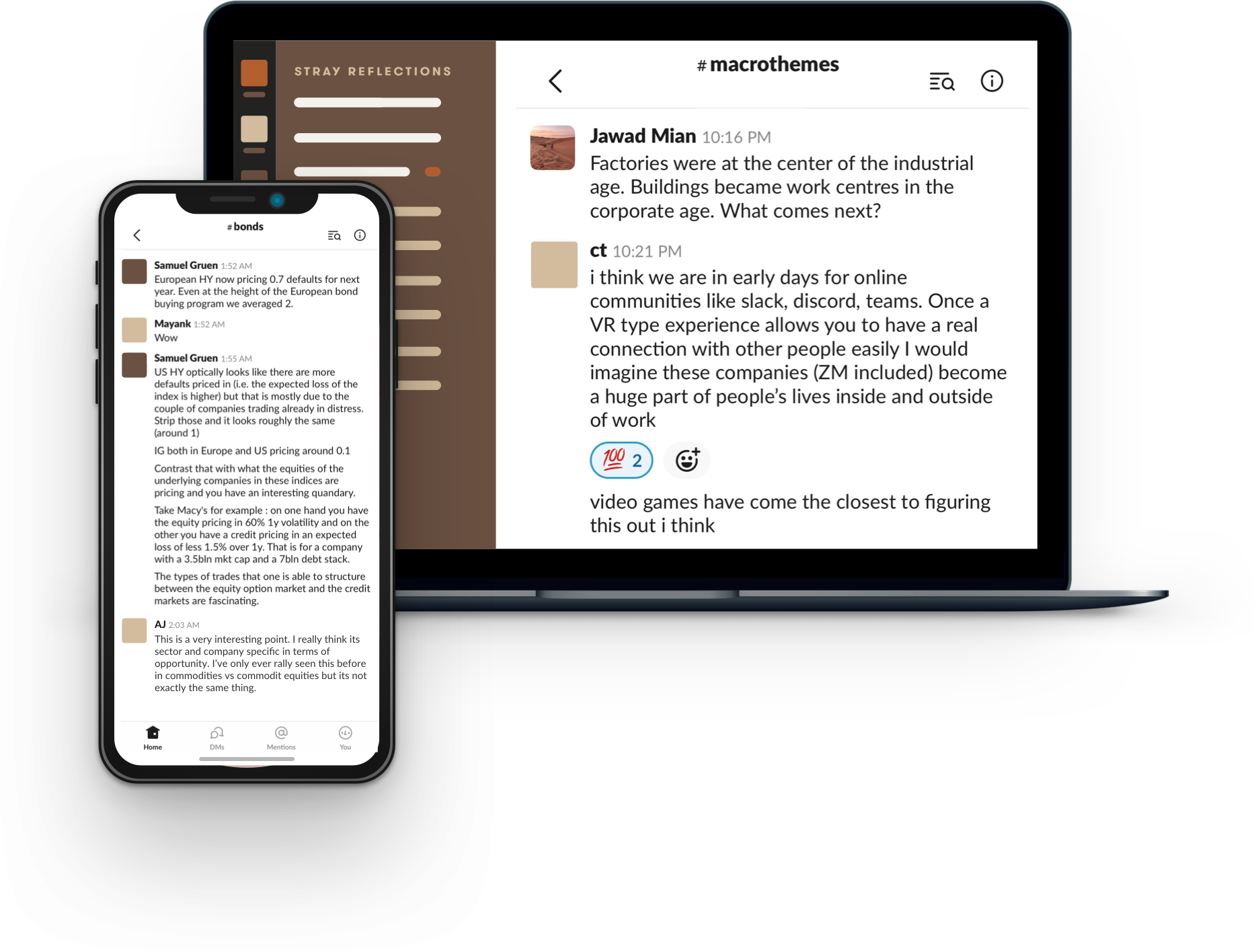Fifteen years ago, I blew my first shot at joining the buy side. There I was, in the final round for an analyst position with CIBC Asset Management in Toronto. I was really close to the end, and I felt a connection with Michael Lynds, the kind gentleman recruiting for his team.
After a candid back and forth, Lynds posed his final question: “What’s the most important trait for a successful investing career?”
An image of my father flashed into my mind. I had been imprinted, in that way that children can be, by the model of his hard work. His self-discipline inspired me. If I was to succeed, my thinking went, embodying those same traits would get me there. “Hard work and discipline,” I replied.
Lynds didn’t seem too pleased with my answer. Was it too cliché? Did I just expose my inexperience? “What do you think is most important?” I asked back, politely.
“Humility,” he said, and nothing more. I nodded. But the truth is I had no idea what he meant. It was my first time hearing the word. I linked it to humiliation, and I confused humility with low self-esteem.
How could lowliness be an accomplishment worthy of praise? I was twenty-two, with big plans and places to go. Being weak or passive wasn’t the path. Anything I came to later understand about the strength of humility was entirely obscured. Desire and ambition take up a lot of headspace.
I didn’t get the job. And I learned the meaning of humility the hard way when the market snatched my savings in 2008. I then turned to the sages.
When Saint Bernard of Clairvaux was asked to identify the four cardinal virtues, he answered, “Humility, humility, humility, and humility.” Lao Tzu observed all streams flow to the sea because it is lower than they are. He said, “Humility gives it its power.” To Emerson, humility was the secret of the wise.
There is no simple definition of the virtue—it’s easier to identify what it’s not.
Humility is not defined by traits like sincerity, honesty, and unselfishness. Humility doesn’t mean thinking little of oneself either. It has nothing do with depreciating our talents in ways we know to be untrue. Outward piety can be deceiving; pride can masquerade as a humble attitude. To lay claim to humility negates the virtue.
Life’s blessings, material or spiritual, are not “acquired goods” from the fruits of one’s own labor. Rather, they are bestowed by the Almighty. He is the source of all things, the means of all things, and the goal of all things. According to St. Augustine, the idea of a great-souled man acting independently of God is the height of arrogance.
True humility comes when we have seen ourselves to be nothing and how truly God is everything. We recognize and place our entire dependance on God.
Humility, then, is a disposition. Like gratitude, it is an interior state that resides in the heart, cultivated by the remembrance and contemplation of God’s majesty. With humility comes an accurate idea of one’s own worth in relation to the divine’s immeasurable stature. The ego is vanquished.
In a way, humility is simply the ability to acknowledge the truth about ourselves. The Angel Gabriel counseled the prophets to “humble yourself before your Lord.”
In Humility: The Journey Toward Holiness, Andrew Murray writes:
Consider how all want of love, all indifference to the needs, the feelings, the weakness of others; all sharp and hasty judgments and utterances, so often excused under the plea of being outright and honest; all manifestations of temper and touchiness and irritation; all feelings of bitterness and estrangement, have their root in nothing but pride.
Place yourself before God in your helplessness; consent to the fact that you are powerless to slay yourself; give yourself in patient and trustful surrender to God. Accept every humiliation; look upon every person who tries or troubles you as a means of grace to humble you. God will see such acceptance as proof that your whole heart desires it.
Beware of the mistake so many make. They have so many qualifications and limitations, so many thoughts and questions as to what true humility is that they never unreservedly yield themselves to it. The highest holiness is the deepest humility. This is your duty. Humble yourself unto death. It is in the death to self that humility is perfected.
A young man once left his homeland to seek Rumi. After weeks of toilsome travel, he reached the outskirts of Konya and saw a gracious presence walking toward him. The young man knew, in his heart, that this was the great teacher he longed for. He dropped to his knees.
Then, as the young man arose, he found Rumi prostrate in the dirt.
Astonished and embarrassed, the young man again prostrated himself. When he arose a second time, Rumi was once more prostrated before him.
This happened over and over again until the exasperated young man finally said, “Why are you, my teacher, prostrating yourself in the dust before me, a mere seeker?” To which Rumi replied, “If I did not show you my nothingness, what would I be useful for?”
I keep returning to humility in different contexts, always finding something new, something more to understand.







